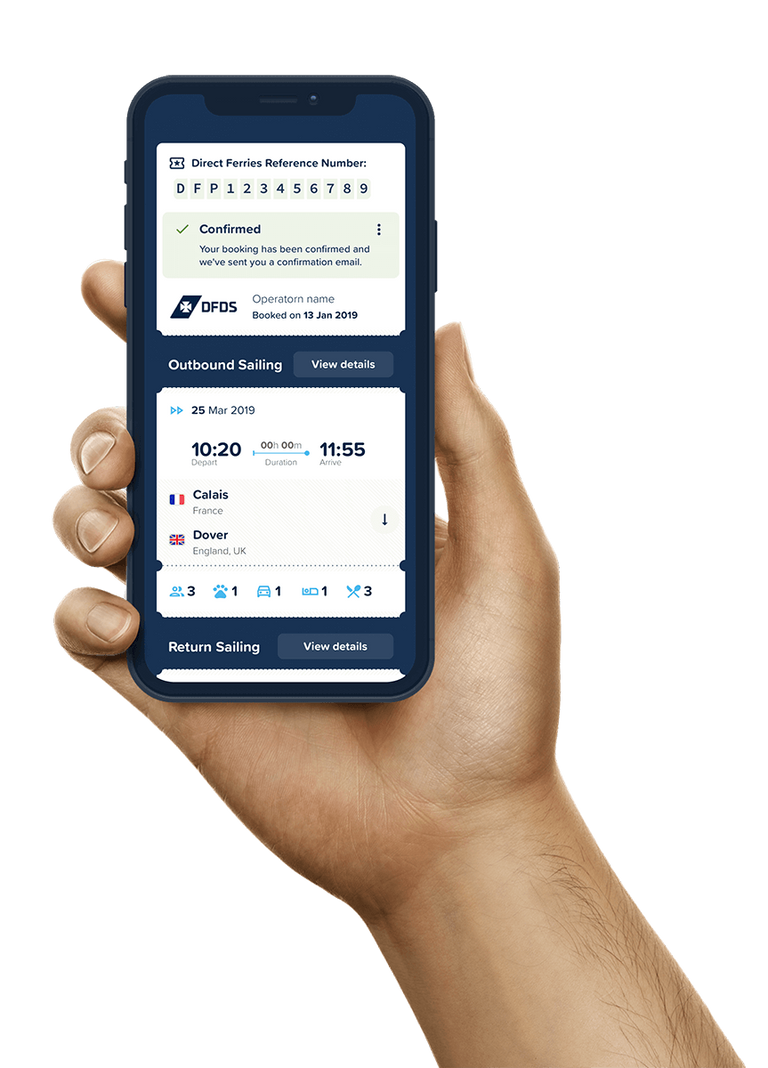- Ferry tickets
- Route & Port finder
- Operators
- Special Offers
- Countries
- Manage my booking
- Customer Service
- My Account
- Currency
-
Language
-
United States
-
Australia
-
New Zealand
-
UK
-
Canada
-
Suisse (FR)
-
Россия
-
Portugal
-
Catalan
-
대한민국
-
Suomi
-
Slovensko
-
Nederland
-
Česká republika
-
España
-
France
-
日本
-
Sverige
-
Danmark
-
中国
-
Türkiye
-
العربية
-
Österreich (DE)
-
Italia
-
Canada (FR)
-
België (NL)
-
Ελλάδα
-
Belgique (FR)
-
Polska
-
Deutschland
-
Schweiz (DE)
-
Norge
-
Україна
-
Indonesia
-
المغرب
-
Maroc (FR)
Choose your preferred language. We speak English and 42 other languages. -
-
More
-
United States
-
Australia
-
New Zealand
-
UK
-
Canada
-
Suisse (FR)
-
Россия
-
Portugal
-
Catalan
-
대한민국
-
Suomi
-
Slovensko
-
Nederland
-
Česká republika
-
España
-
France
-
日本
-
Sverige
-
Danmark
-
中国
-
Türkiye
-
العربية
-
Österreich (DE)
-
Italia
-
Canada (FR)
-
België (NL)
-
Ελλάδα
-
Belgique (FR)
-
Polska
-
Deutschland
-
Schweiz (DE)
-
Norge
-
Україна
-
Indonesia
-
المغرب
-
Maroc (FR)
Choose your preferred language. We speak English and 42 other languages.
Jeju
Busan
Ferries to South Korea
Sorry, the Jeju Busan Ferries service is no longer available with Direct Ferries.


 Euro
Euro
 US Dollars
US Dollars
 United States
United States
 Australia
Australia
 New Zealand
New Zealand
 UK
UK
 Canada
Canada
 Suisse (FR)
Suisse (FR)
 Россия
Россия
 Portugal
Portugal
 Catalan
Catalan
 대한민국
대한민국
 Suomi
Suomi
 Slovensko
Slovensko
 Nederland
Nederland
 Česká republika
Česká republika
 España
España
 France
France
 日本
日本
 Sverige
Sverige
 Danmark
Danmark
 中国
中国
 Türkiye
Türkiye
 العربية
العربية
 Österreich (DE)
Österreich (DE)
 Italia
Italia
 België (NL)
België (NL)
 Ελλάδα
Ελλάδα
 Polska
Polska
 Deutschland
Deutschland
 Norge
Norge
 Україна
Україна
 Indonesia
Indonesia
 المغرب
المغرب
 Euro
Euro
 US Dollars
US Dollars

